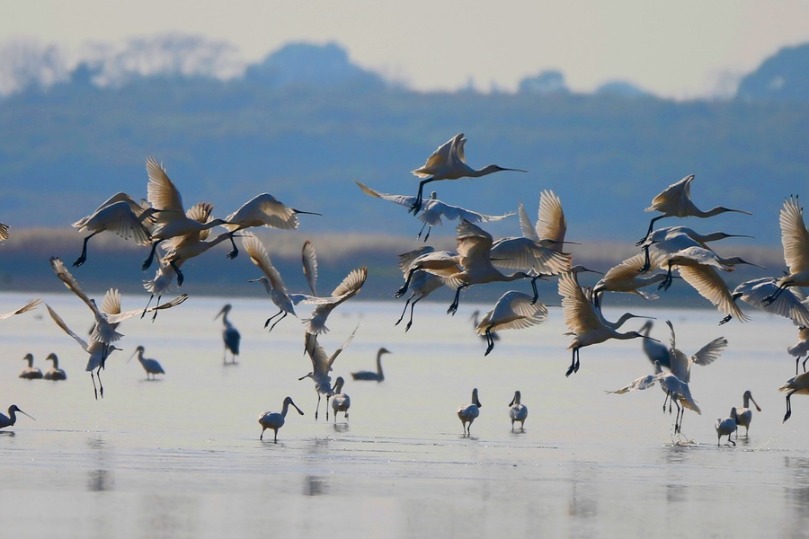Vitamin C may help elderly people stay active longer, Chinese researchers find

Chinese scientists have discovered that vitamin C may help combat the degeneration of motor functions in elderly individuals by targeting a newly identified subtype of cells found in the spinal cords of older primates.
In a study published in the journal Nature on Oct 31, researchers from the Chinese Academy of Sciences' Institute of Zoology and the CAS' Beijing Institute of Genomics identified a subtype of cell called AIMoN-CPM that accumulates in the spinal cords of aged primates and produces a protein called chitotriosidase, or CHIT-1. They found that CHIT-1 triggers the aging process of motor neurons nearby.
To test their hypothesis, researchers injected high-density CHIT-1 into the cerebral fluids of lab monkeys, causing them to exhibit signs of aging and dysfunction in the transmission of motor signals.
They also established a modeling system of human neuron activities outside the human body using differentiated stem cells to mimic the interactions between motor neurons and the environment. They found that neutralizing antibodies against CHIT-1 can effectively block its activity in triggering the motor neurons' aging process.
Moreover, the researchers found that ascorbic acid, or vitamin C, counteracted the effect of CHIT-1 and mitigated motor neuron senescence in aged monkeys.
"We conducted a study of vitamin C for aged cynomolgus monkeys that lasted three years," said Qu Jing, a co-author of the research from the zoology institute. "The study showed that long-time oral intake of vitamin C can significantly improve the aging process of motor neurons in the monkey's spinal cords."
The seven-year study affirmed the toxicity of CHIT-1 protein on motor neurons in the aging process. By using AIMoN-CPM and CHIT-1 as targets, pharmaceutical industries may have a new shot in finding drugs that may delay the aging of spinal cords and hence help treating more diseases for the elderly, researchers said.
- China launches 18 communications satellites
- Kunqu Opera classics mark the opening of Shanghai intl arts festival
- UN adds four Chinese villages to Best Tourism Villages list
- Intl copyright expo and forum open in Qingdao
- CASS and Netherlands' university mark 10 years of collaboration
- Global vloggers learn about Chinese civilization in Shanxi




































